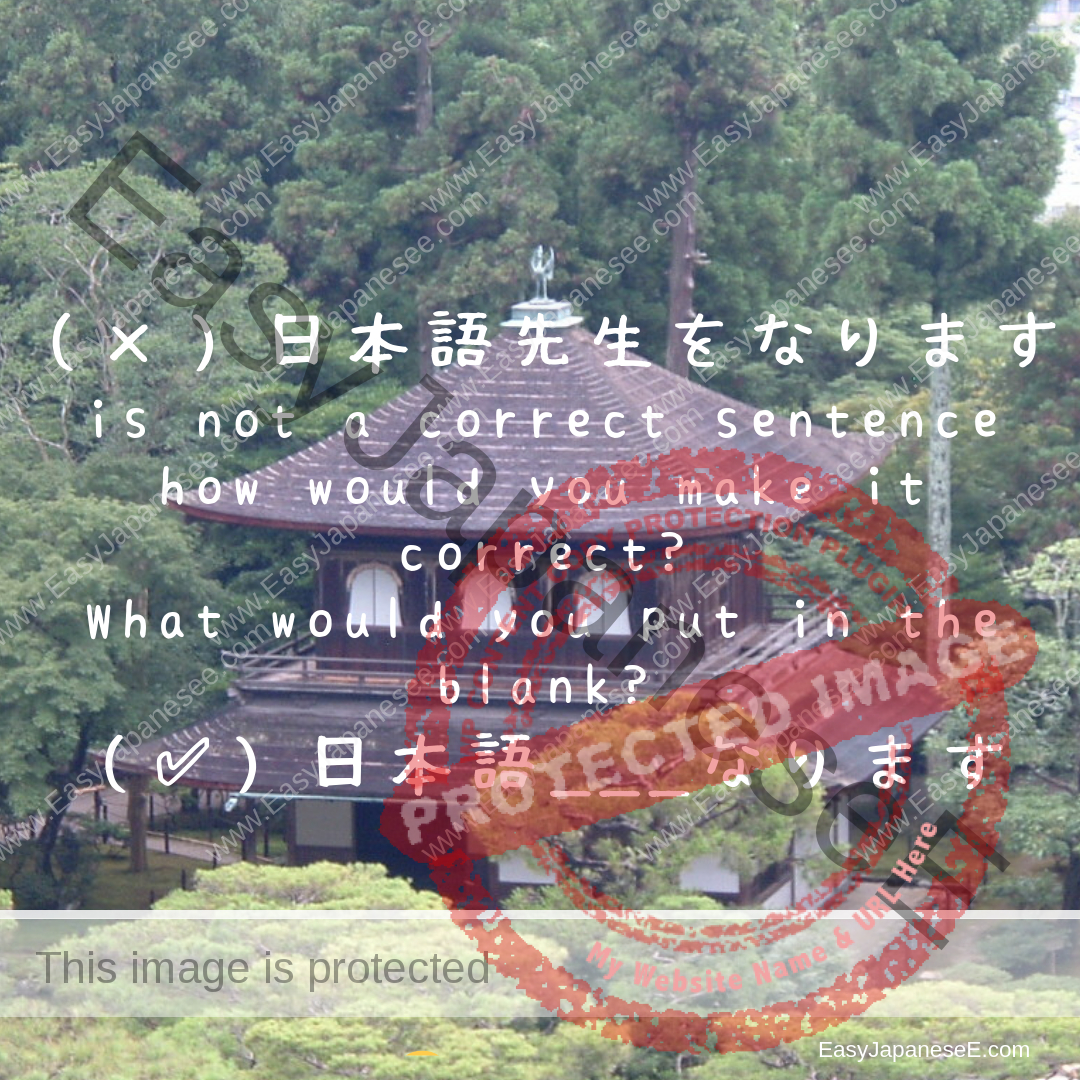日本語(にほんご)先生(せんせい)をなります is NOT a correct sentence. So how would you fix it?
Yes, that’s quite a bit better. なります means “to become.” As “a Japanese teacher” is not an object of the verb “become” (but something that you turned into), you cannot use the object marker を with it. Instead, you should use に.
But with my response “quite a bit better” will probably prompt my Year 12s to say:
日本語の先生になります。
Yes, that is a lot better. You do need the noun joiner の between 日本語 and 先生. With Year 12s I think I can stop right here.
However, there may be some readers who are actually teachers and/or those who are aiming to learn beyond that level (like my Year 12s), so I will go on to say that I will never say 日本語の先生になりました myself although I did become a Japanese teacher. Why?
Instead I will say:
日本語教師(きょうし)になりました。
The reason is 先生 is an honorific word, so you don’t use it for yourself. Of course, if you are teaching very young children in a preschool or a primary/elementary school, you will have occasions when it’s appropriate to call yourself 先生 but I’m talking about the word “teacher” as an occupation here. That in Japanese is 教師(きょうし), not 先生.
So (one of) the most correct answer(s) to put in the blank in the caption is: 教師に.
(の教師に is not wrong, but as I said before, I would say 日本語教師 myself.)
Now, this post was prompted by a recent, rather unpleasant incident I came across.
Somebody was advertising her “online Japanese tutoring” business on social media sites and her post accompanied the above sentence 日本語先生をなります together with a few more incorrect sentences. Because she was advertising a tutoring “business,” I didn’t think it was appropriate to outright correct her mistakes in a comment, so I DM’ed her and offered to proofread her Japanese sentences.
Apparently it was “rude and mean” of me to do that!
You cannot learn a language without making mistakes. I fully understand that. And no matter how hard and how many years you study a language, it is really hard to speak/write it perfectly. I know that too well because I am aware that I make heaps of mistakes in English (thank you for not counting all the mistakes I have made so far!) and I say to my students that they can make mistakes because I’m making mistakes, too. But I am NOT teaching English here. My students say that they can understand me in English and I’m sure you can keep reading despite my English mistakes and you can still learn Japanese here (I hope)!
If we are getting paid to teach a language, I believe that we must make every effort to eliminate errors in the target phrases/sentences. Students have no way of knowing if there is a mistake in the target phrases/sentences we present to them! Many teachers seem to agree with me on this matter and that is the reason why quite a few teachers use my “
Conversation Partner Programme” where we talk in Japanese for 15 minutes every week on any subject they choose and they ask me various questions they come across while teaching their students. When I was teaching English in Japan, I had access to ALT’s (Assistant Language Teachers) and without their help, I couldn’t teach (and wouldn’t have dared to teach) composition classes.
If you are interested in my “Conversation Partner Programme,” I offer the first session free as a sample. Please book a session through this page and type “TRIAL” as your discount code! Confidentiality is guaranteed. Unless you tell it yourself, nobody will know that you are using my services.

